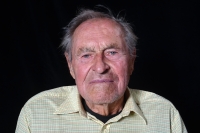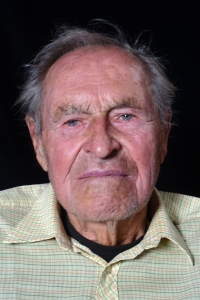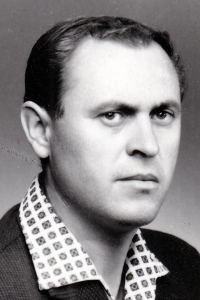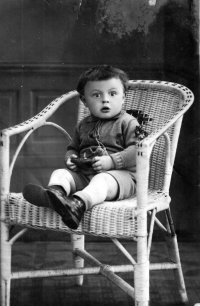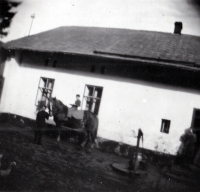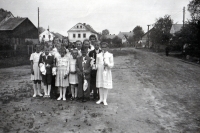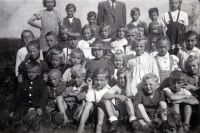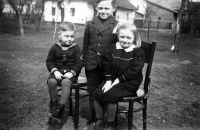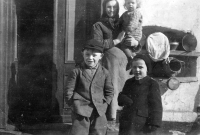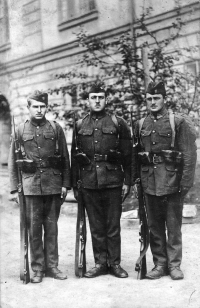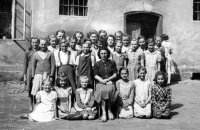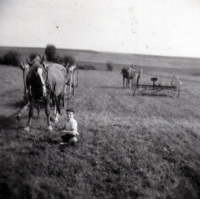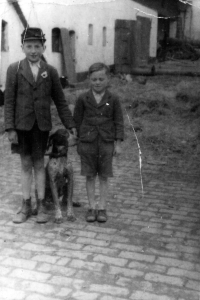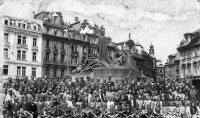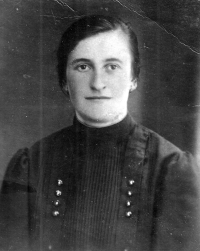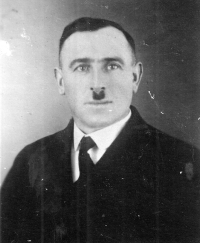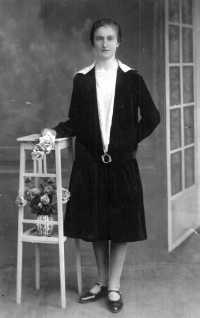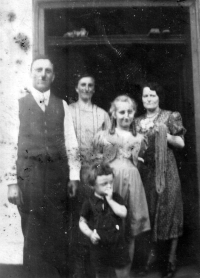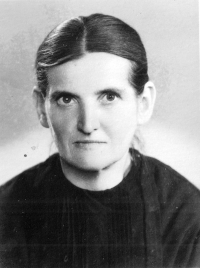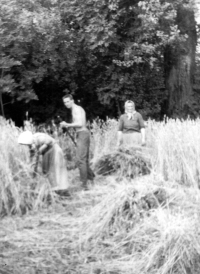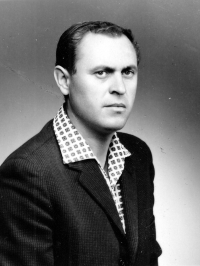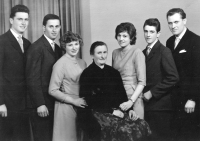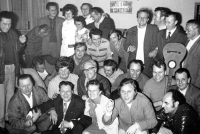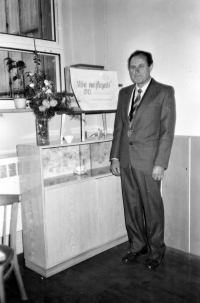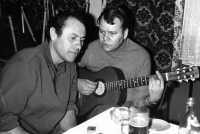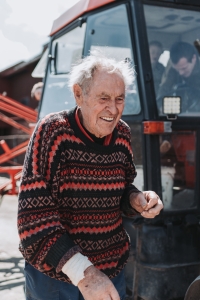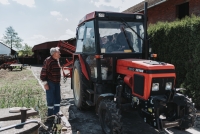With the white flag on the horse cart, from war to war

Download image
Jan Teichmann was born on 22 May 1937 into the family of his German father Emil Teichmann and Czech mother Marie née Daňková. Her father was a farmer whose family had farmed in Třebom since the 17th century. In the spring of 1945 the family fled inland from the front of the Ostrava-Opava operation and found temporary asylum in Budišov nad Budišovkou. After returning to Třebom, the farm was empty, the Teichmanns lost their property and animals. According to Beneš’s decrees, the family’s farm and fields were confiscated and the family was threatened with deportation. Due to the origin of the mother, they did not have to be expelled, they were given a part of the land and could farm again. In 1947, the father died with a heart condition. Jan Teichmann took over the farm with his mother. At the end of the 1950s, his mother was forced to join a cooperative farm and Jan then went to work in the armature factory in Dolní Benešov. At the time of recording in 2024, he was living in his family home with his grandson and his family in Třebom.
